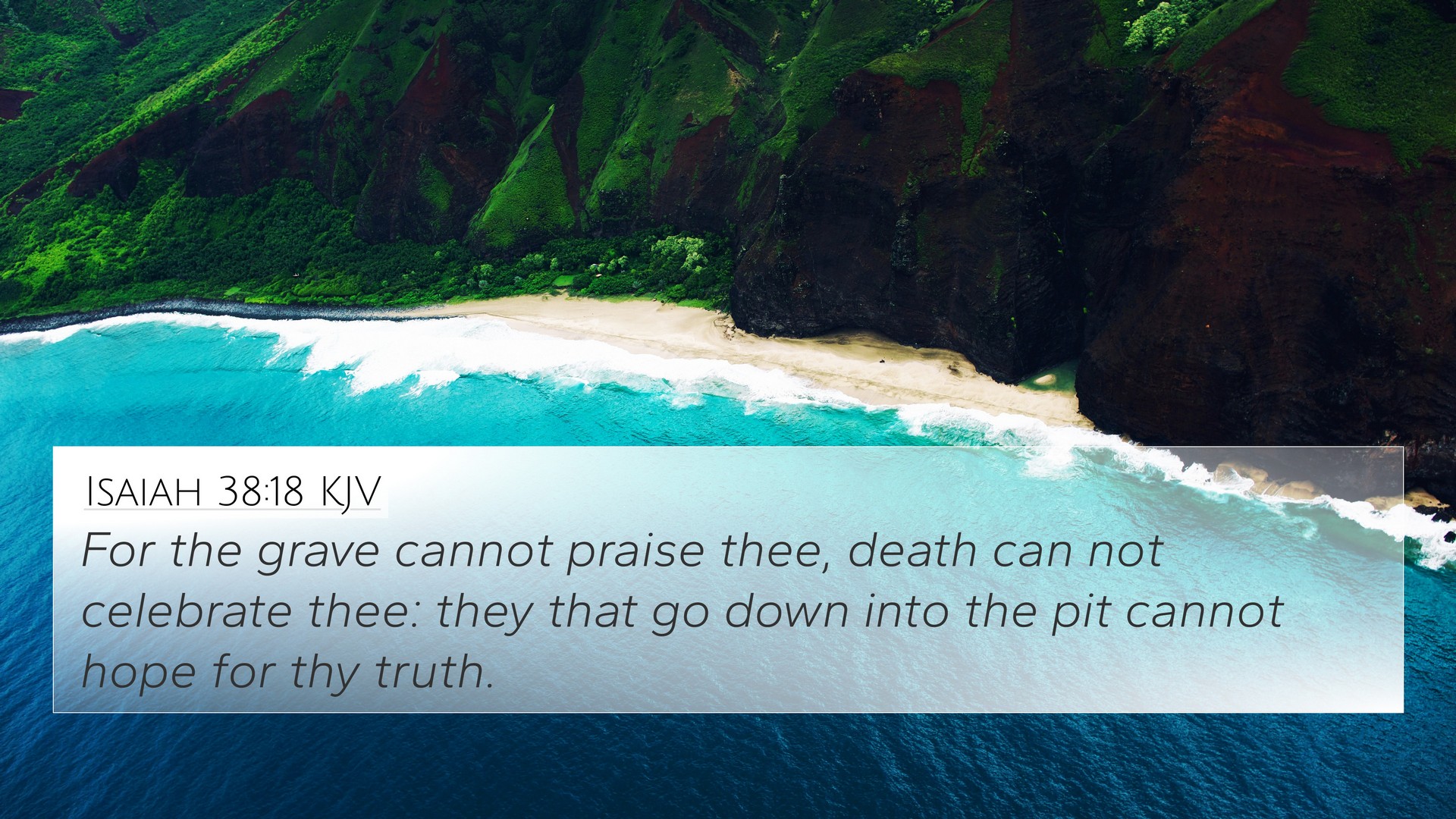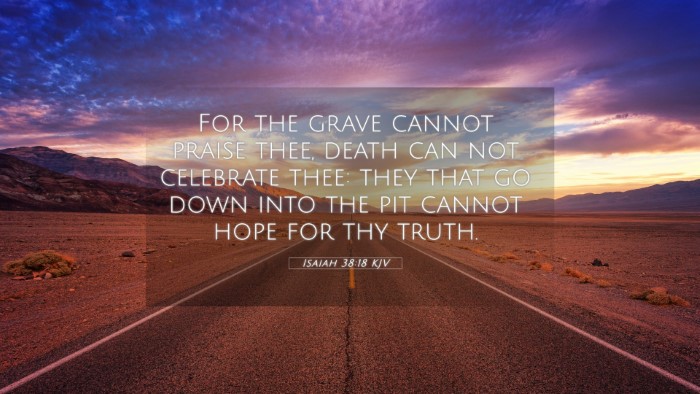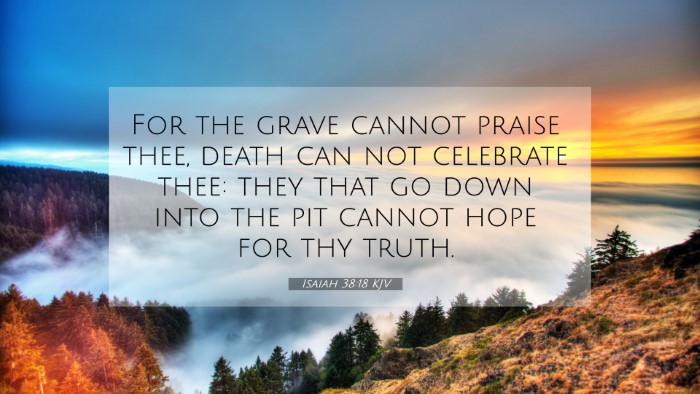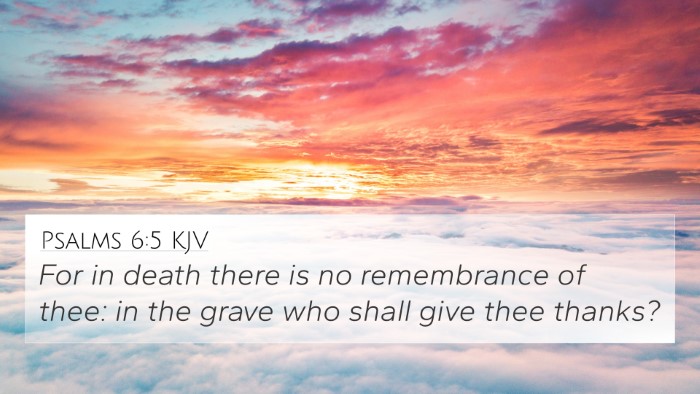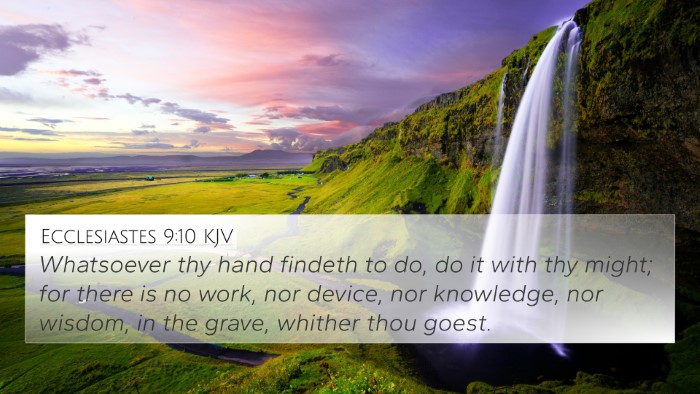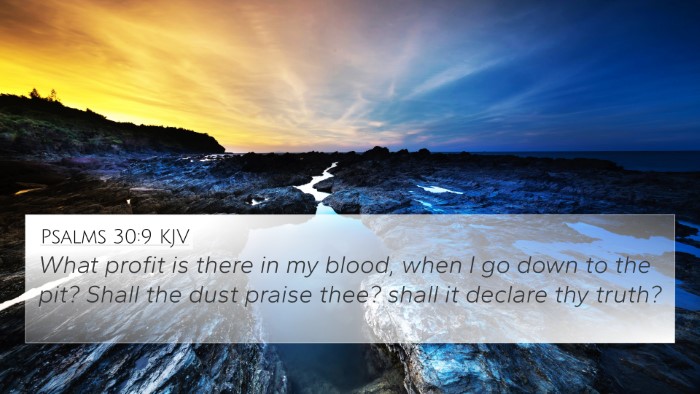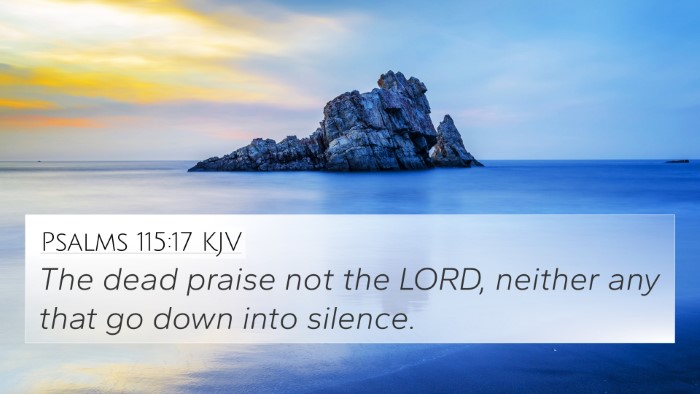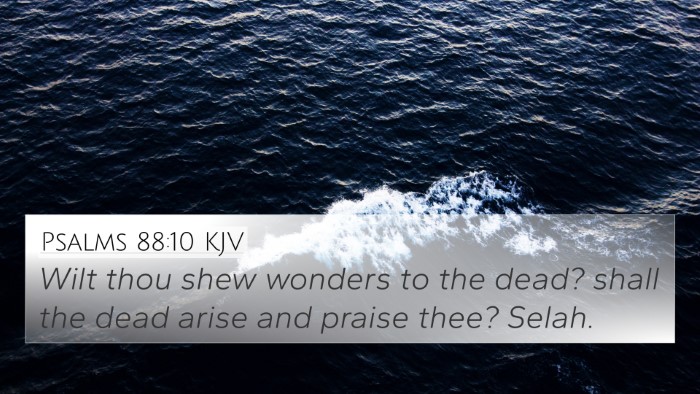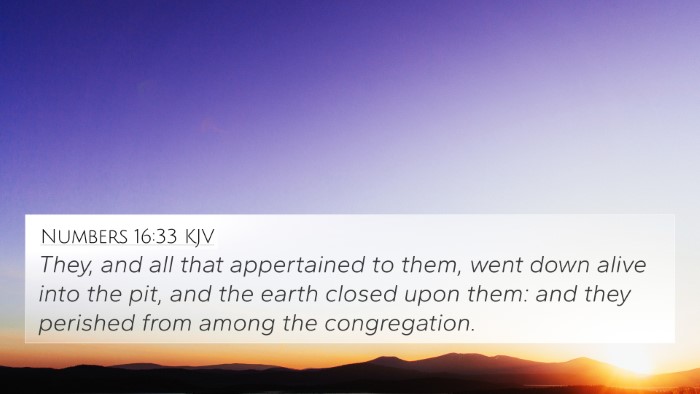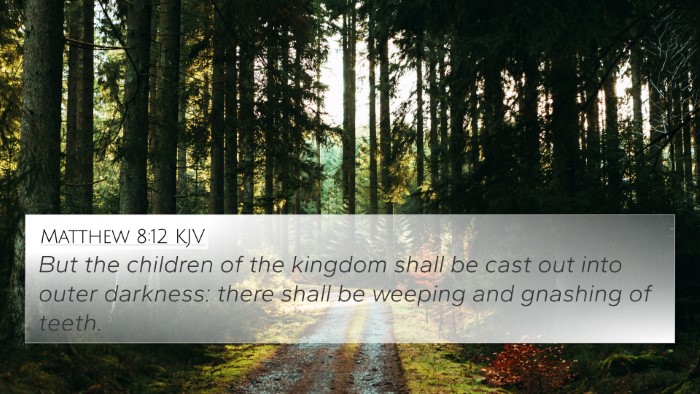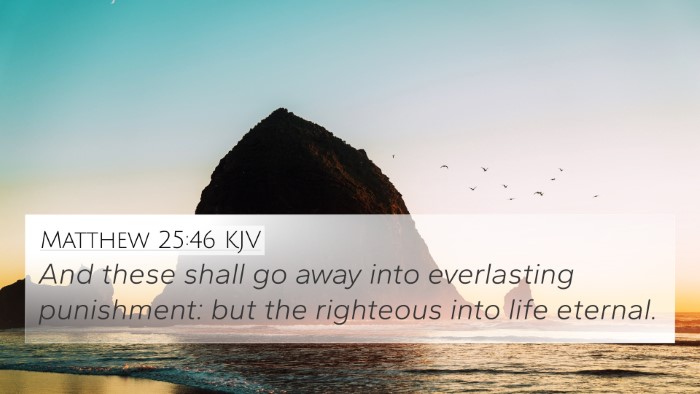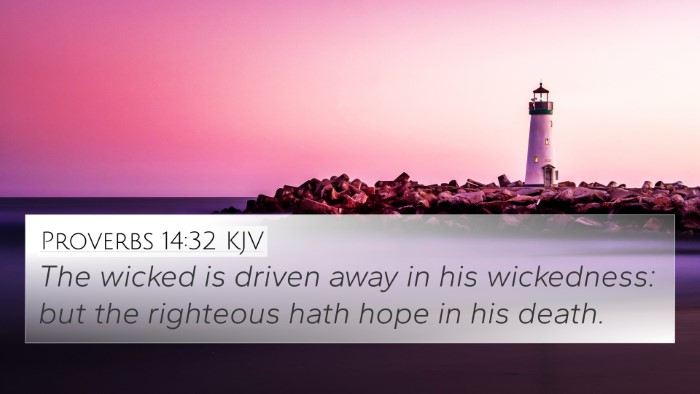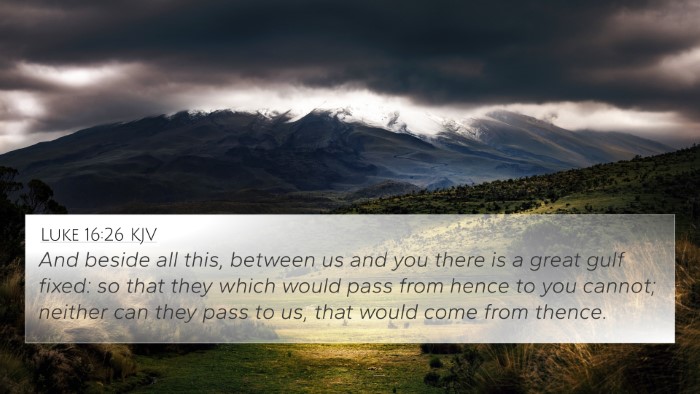Understanding Isaiah 38:18
Isaiah 38:18: "For Sheol cannot thank You, death cannot praise You; Those who go down to the pit cannot hope for Your faithfulness."
This verse, taken from the book of Isaiah, serves as a profound reflection on the nature of life, death, and divine faithfulness.
Meaning and Insights from Commentaries
The following insights have been distilled from respected public domain commentaries, including those by Matthew Henry, Albert Barnes, and Adam Clarke.
Matthew Henry's Commentary
Matthew Henry emphasizes the contrast between the living and the dead in terms of their ability to express gratitude and praise to God. He explains that death brings an end to awareness and opportunity for worship, and thus the grave (Sheol) cannot honor God as the living do. The faithful, however, are called to praise Him while they still have breath.
Albert Barnes' Notes
Albert Barnes focuses on the concept of Sheol, noting that it is a place of silence and where no praises can be sung. He implies that one's hope and expressions of faith must occur during life, asserting the importance of using one’s life to honor God while alive. Barnes further connects this idea to the hope found in God’s faithfulness, suggesting that even in death, believers can hold onto the promise of God’s enduring nature.
Adam Clarke's Commentary
Adam Clarke dives into the interpretation of death and Sheol, discussing their implications for human existence. He highlights that once one enters this state, there is no more room for repentance or acknowledgment of God's grace, emphasizing the urgency of faith and expression of devotion while life persists.
Key Themes and Connections
- The Relationship Between Life and Death: The verse strongly emphasizes that the living have the unique opportunity to praise God, while the dead can no longer express their faith.
- Divine Faithfulness: The hope for God's unwavering faithfulness is a recurring theme, suggesting that life is a gift that should be utilized to honor Him.
- Urgency of Worship: There is an implicit warning to cherish and utilize the time in life for worship, as death brings silence.
Cross-References
Several Bible verses can provide further context and understanding of Isaiah 38:18, illustrating its themes and reinforcing its messages:
- Psalm 6:5: "For in death there is no remembrance of You; In the grave who will give You thanks?"
- Ecclesiastes 9:10: "Whatever your hand finds to do, do it with your might; for in the grave, where you are going, there is neither working nor planning nor knowledge nor wisdom."
- Psalm 30:9: "What profit is there in my blood, when I go down to the pit? Will the dust praise You? Will it declare Your truth?”
- Romans 14:8: "For if we live, we live to the Lord; and if we die, we die to the Lord. Therefore, whether we live or die, we are the Lord’s."
- Revelation 21:4: "And God shall wipe away all tears from their eyes; and there shall be no more death, neither sorrow, nor crying, neither shall there be any more pain: for the former things are passed away."
- Job 14:14: "If a man dies, shall he live again? All the days of my struggle I will wait until my change comes."
- 1 Corinthians 15:20: "But now Christ is risen from the dead, and has become the firstfruits of those who have fallen asleep."
Conclusion
The reflections on Isaiah 38:18 compel readers to acknowledge the importance of life as a period for worship, underscoring the gravity of death in the context of divine praise. By understanding these themes and connections, one can appreciate the rich tapestry of biblical texts that speak to the life cycle, divine faithfulness, and the call to worship.
Further Study
For those interested in exploring these themes in depth, utilizing Bible concordances and cross-reference guides can enhance your study. Tools for Bible cross-referencing reveal the intricate connections among scriptures, thus deepening understanding of how biblical texts relate to each other through various themes.
